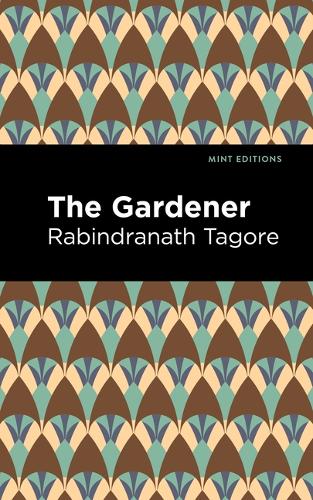
The Gardner
(Hardback)
Publishing Details
The Gardner
By (Author) Rabindranath Tagore
Contributions by Mint Editions
Mint Editions
Mint Editions
19th January 2022
United States
Classifications
General
Non Fiction
Modern and contemporary poetry / poems
Physical Properties
Hardback
98
Width 127mm, Height 203mm
Description
The Gardener (1915) is a collection of poems by Rabindranath Tagore. Translated into English by Tagore and dedicated to Irish poet W. B. Yeats, The Gardener is a collection of earlier poems republished following his ascension to international fame with the 1912 Nobel Prize in Literature. When Yeats discovered Tagores work in translation, he felt an intense kinship with a man whose work was similarly grounded in spirituality and opposition to the British Empire. For the Irish poet, Tagores poems were at once deeply personal and essentially universal, like a secret kept by all and shared regardless. Whether or not we admit it, his words never fail to remind us: to be human is to be vulnerable. In the morning I cast my net into the sea. I dragged up from the dark abyss things of strange aspect and strange beautysome shone like a smile, some glistened like tears, and some were flushed like the cheeks of a bride. [] Then the whole night through I flung them one by one into the street. In the morning travellers came; they picked them up and carried them into far countries. In his landmark collection Gitanjali, Tagore explored the realm of the spirit, paring down language to its clearest, purest form. In The Gardener, he gives expression to more worldly themes. Here, he is a fisherman, a restless wanderer, a servant and queen, an observer of life in all forms. With a beautifully designed cover and professionally typeset manuscript, this edition of Rabindranath Tagores The Gardener is a classic of Indian literature reimagined for modern readers.
Author Bio
Rabindranath Tagore (1861-1941) was an Indian poet, composer, philosopher, and painter from Bengal. Born to a prominent Brahmo Samaj family, Tagore was raised mostly by servants following his mother's untimely death. His father, a leading philosopher and reformer, hosted countless artists and intellectuals at the family mansion in Calcutta, introducing his children to poets, philosophers, and musicians from a young age. Tagore avoided conventional education, instead reading voraciously and studying astronomy, science, Sanskrit, and classical Indian poetry. As a teenager, he began publishing poems and short stories in Bengali and Maithili. Following his father's wish for him to become a barrister, Tagore read law for a brief period at University College London, where he soon turned to studying the works of Shakespeare and Thomas Browne. In 1883, Tagore returned to India to marry and manage his ancestral estates. During this time, Tagore published his Manasi (1890) poems and met the folk poet Gagan Harkara, with whom he would work to compose popular songs. In 1901, having written countless poems, plays, and short stories, Tagore founded an ashram, but his work as a spiritual leader was tragically disrupted by the deaths of his wife and two of their children, followed by his father's death in 1905. In 1913, Tagore was awarded the Nobel Prize in Literature, making him the first lyricist and non-European to be awarded the distinction. Over the next several decades, Tagore wrote his influential novel The Home and the World (1916), toured dozens of countries, and advocated on behalf of Dalits and other oppressed peoples.
